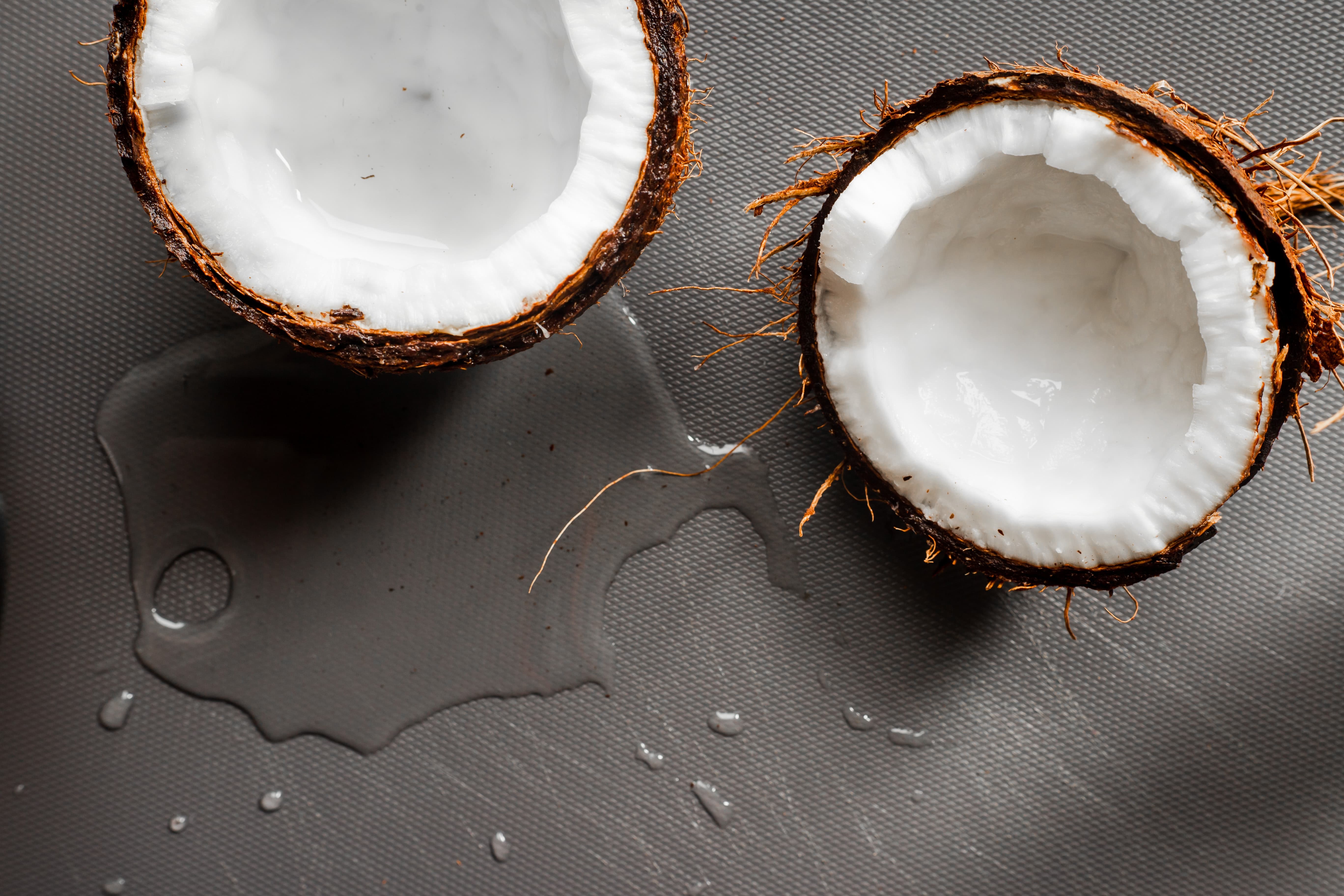
Coconut has become a very popular food in recent days, which has resulted in the abundance of different coconut products available in supermarkets. Two of the most commonly used products are coconut oil and coconut milk. Coconut oil is a versatile cooking oil, while coconut milk provides fat, protein, and various nutrients.
To know the differences between each product, it is important to know how each one is obtained and what are its different uses in the kitchen. In addition, coconut cream is also a great reference in the diet of people who lead a healthy lifestyle.
Coconut Oil Nutrition Facts
Coconut oil can be used for cooking; you can make virtually any dish, from baked goods to fried foods, with this oil. You can also use it to make salad dressings or even drinks, like smoothies. There are different types of coconut oil, which means that in the supermarket you will see products with different labels.
For example, products may have words like refined, hydrogenated, or virgin on their labels, or they may not be labeled at all. Be sure to stay away from hydrogenated coconut oil, which typically contains unhealthy trans fats, and always buy virgin coconut oil. Virgin oil is made by pressing fresh coconut meat, while refined coconut oil is made by pressing dried coconut meat.
Each tablespoon (14 grams) of coconut oil has 13 grams of fat. The fats in coconut oil are a mix of polyunsaturated, monounsaturated, and saturated fats. Coconut oil doesn't really have any other nutritional value otherwise, although it is known to be rich in antioxidants of various kinds.
Although coconut oil can be used in a variety of foods and is generally considered a healthy fat, it should be consumed in limited amounts.

Coconut milk nutritional information
There are many different types of milk, so this product may differ substantially in your nutrition. It is possible to make coconut milk from young coconuts, which are low in fat, or older coconuts, which can produce a fattier product.
You can easily find milk products that have the consistency of any other dairy product, from skim milk to whole milk. Most commercial products are made from older, fatter coconuts and are watered down. However, it is possible to make your own coconut milk at home if you have access to fresh, raw coconut meat.
En general, the milk of this fruit is low in vitamins but rich in minerals. One hundred grams of milk contain:
- 25 percent of the daily value (DV) for copper
- 18 percent of the DV for iron
- 11 percent of the DV for magnesium
- 33 percent of the DV for manganese
- 8 percent of the DV for match
- 5 percent of the DV for potassium
- 5 percent of the DV for zinc
It also contains small amounts (between 1 and 4 percent) of other nutrients such as calcium, vitamin C, B complex vitamins and choline. You can get 2 grams of protein, 21.3 grams of fat, and 2.8 grams of carbs for every 100 grams of coconut milk.
Be careful consuming many refrigerated coconut milk products, as they generally contain a lot of additives, such as added sugar, and may have very little actual coconut. Products like these may be fortified with additional nutrients, but may not be very healthy compared to other plant-based dairy products.
coconut oil vs coconut milk
Coconut milk and oil are made from coconut meat. Milk is made by heating coconut meat in water and straining the resulting product, just like coconut cream. By contrast, coconut oil is made by pressing the meat to extract its fats. This means that the difference between coconut oil and coconut milk is primarily a depending on the processing method.
Coconut milk is a nutrient-dense food that you can consume somewhat liberally, though limited by its fat content. By contrast, coconut oil is a high-fat product that lacks the nutrients found in other coconut products and should generally be eaten in moderation. From a nutritional perspective, coconut milk is usually better than coconut oil. However, it is actually coconut oil that has been associated with the most health benefits and causes the most controversy.
If you are very fond of coconut and want to consume it regularly, alternate the products you are consuming to get all the benefits of coconut. Other coconut products, such as raw coconut meat, have even more vitamins, minerals, and other important nutrients, such as fiber.

coconut cream vs coconut milk
Since coconut milk and cream are made using the same process, differentiating coconut cream from milk can be challenging. Unlike oil and milk, cream and coconut milk can have many similarities. The differences between these products completely depend on the manufacturers and how much coconut they incorporate into a product.
The milk generally has the consistency of any other milk, which means it can resemble soy milk, almond milk, or animal milk. Coconut cream is just a little thicker, like soy cream, oat cream, or any animal cream product. The main difference between coconut milk and coconut cream is that coconut cream has more coconut and less water.
Although this sounds straightforward, coconut milk products can vary substantially. The milk found in cartons is likely to be very similar to low-fat milk. However, milk is often sold in cans as well. Canned milk is usually creamier and contains much more coconut than other milks, to the point that it can even be equivalent to coconut creams.
Canned coconut milk can have varying amounts of coconut: low values around 25 percent are common, but you may find values as high as 65 percent. Coconut creams always have a lot of coconut, but this value can also be around 65 percent, so there is an overlap between these products. Some coconut creams contain shredded coconut or are more similar to solidified oil, but most are simply a fatter, creamier version of coconut milk.